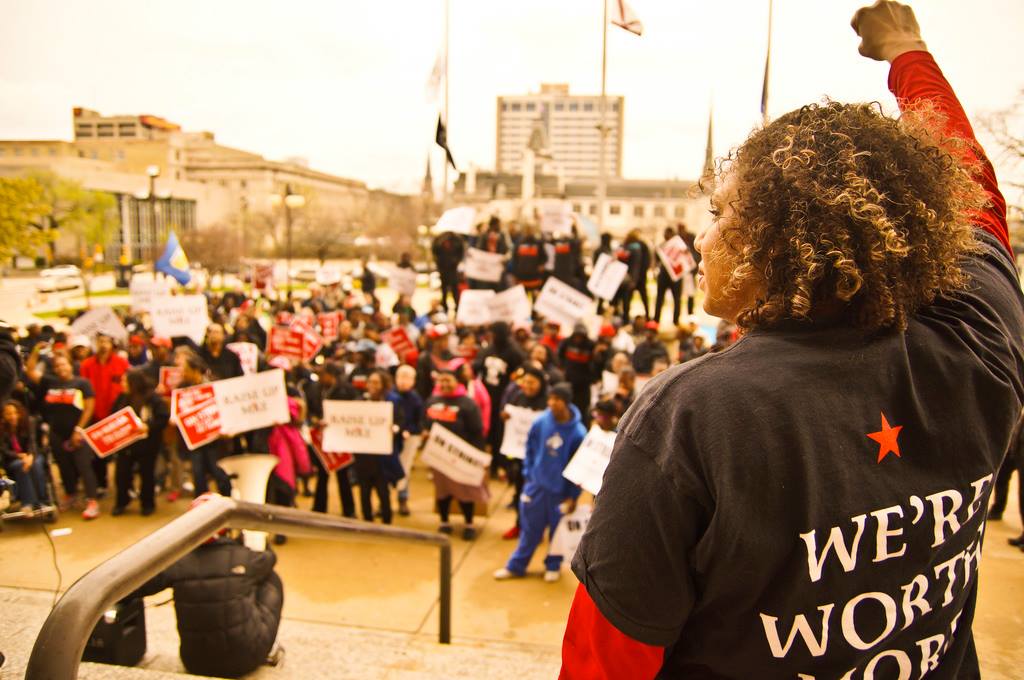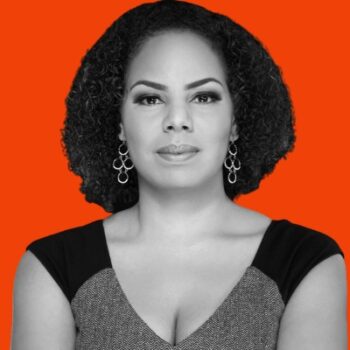I‘ve been organizing my entire life—my mom might even say since I emerged from the womb. I’ve always had the desire to seek justice, whether it was cussing out a teacher who I felt was picking on a classmate, or taking on the playground bully. In my early years, I didn’t think of power as something to be held, instead, I saw it as something that needed to be challenged and fought against. As I got older I came to understand that injustice wasn’t just about one person’s actions, but rather a system in which those who had amassed undue power wield it as a tool of control and exploitation.
It was my experience in campaigns and social justice organizations over the last two decades, both the successes and failures, that shifted my understanding of power and led me to want to join the Power Working Group (PWG) to explore the question of what power is and whether our movements have enough. Power means different things to different people, but for me it’s about being able to have a say in the systems and institutions that control my life. It’s about being able to stop the things that harm and to implement things that affirm and sustain. It’s about being able to solve problems, dream, and imagine. It’s about building a world where our people can thrive and experience joy.
One transformative moment in my life that shaped my understanding of power occurred when I was a high school sophomore in Milwaukee, WI. At the time, our governor was pushing a bill to dismantle the Milwaukee Public School System, which is mostly people of color. Most adults around us told us it was a lost cause to fight the bill, but we organized a city-wide walkout and protest. Despite schools attempting to lock students in school to stop us, we persisted and ultimately defeated that immediate threat to our education. This experience taught me that while individually we are easy to control and defeat, collectively we are powerful beyond measure.
Another pivotal moment for me was in 2012, during the time I spent with the Fight for $15 and a union campaign led by Black and Brown fast food workers. Initially, even allies laughed at the notion of achieving a $15 minimum wage. But these workers knew their worth and organized across race, class, gender, and geography to make their vision a reality. Their efforts have led to significant wage increases for tens of millions of low-wage workers over the past decade and birthed a new era of organizing workers who are not held hostage to the limitations of previous organizing efforts.
While neither of these campaigns have achieved our North Star––a country where economic and racial justice is fully realized––they have advanced our fight, built deep and lasting communities, and improved the lives of millions. That’s power.
The Genesis of the Power Working Group
The PWG, a joint project of The Forge and The Action Lab, brought together organizers and leaders from base-building organizations across the country. We may work on different issues, but we share a common goal: building power for racial and economic equity. The necessity of this project became evident as we collectively acknowledged our current limitations in achieving our broader aims. We needed a way to assess our power, understand our peers’ perspectives, and identify shared pathways to greater strength as a movement. The Power to Win report is a testament to this collective introspection and strategic alignment.
The Process: Grounded in Experience and Vision
The Power to Win report was born from the voices of hundreds of organizers who shared their stories through interviews and surveys. These accounts provide a sobering look at what we are up against. Organizers are not afraid of losing; instead, they fear the cost of inaction, the cost of leaving oppressive forces to their own devices. Time and time again, the narratives circled back to the notions of collectivism, shared struggle, having each other’s backs, and showing up for one another. Power is understanding our individual part in a collective journey. Power is about never limiting ourselves to the imagination or expectations of our oppressors.
The Necessity of the Power to Win Project
The necessity of the Power to Win project lies in grounding our understanding of power as organizers. Through my 25 years of organizing, across hundreds of campaigns—some victorious, some not—I have come to understand that power is not fixed, given, or unbeatable. It is about building alignment, sharing a vision, and making sacrifices for results that may not directly benefit us but push our collective vision for a better world closer to reality. Power is not about what we lack but what we possess: each other, our moral compass, our legacies, our imaginations, and our collective vision.
The findings in the Power to Win report reveal that power can be collective, caring, and centered within the most impacted people. It is not something that those benefiting from harming our communities will relinquish easily.
Our strength lies in defining power on our terms and finding resilience in our values. The Power to Win report illustrates that power does not have to be corrupting, singular, or exploitative. Instead it can be rooted in our shared humanity and collective vision. We must build strong, resilient organizations that reflect and respond to our people.
Possibilities for More Aligned Organizing Work
The Power to Win report opens up possibilities for more powerful and aligned organizing work across sectors and across the country. It provides a framework for understanding how we can build power collectively and strategically. The insights from the report can guide us in creating more effective campaigns, building stronger alliances, and achieving greater impact.
The Power to Win report is a critical tool for our movement. It offers a comprehensive analysis of our current state, the challenges we face, and the opportunities for building greater power. As organizers, it is our responsibility to use this report to guide our work, inspire our communities, and build the power we need to create a just and equitable world. Together, we can turn our collective vision into reality.

